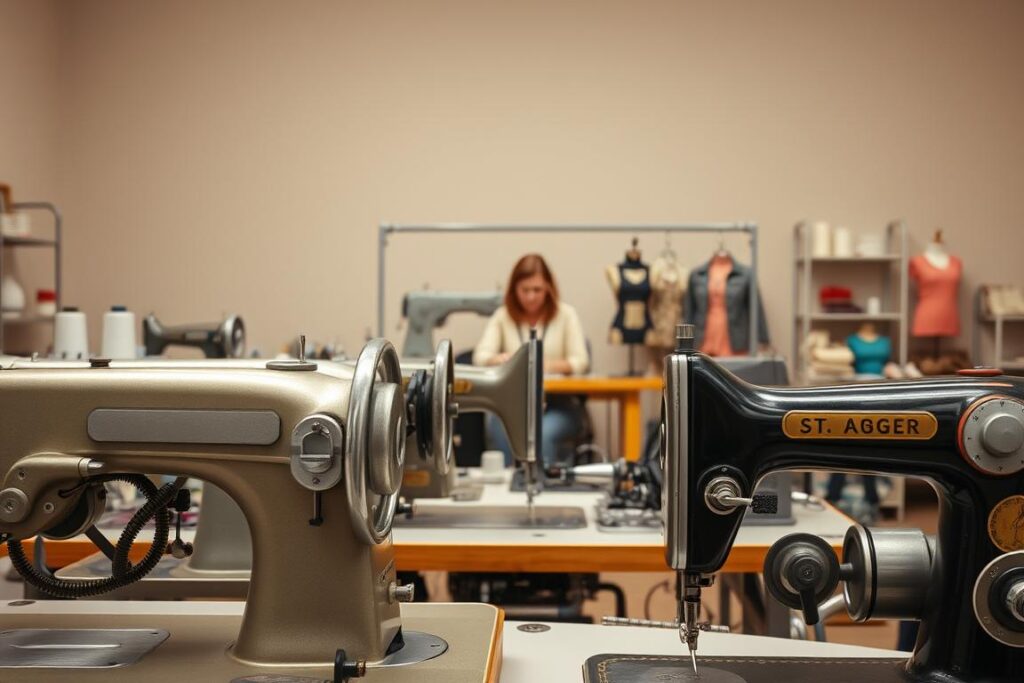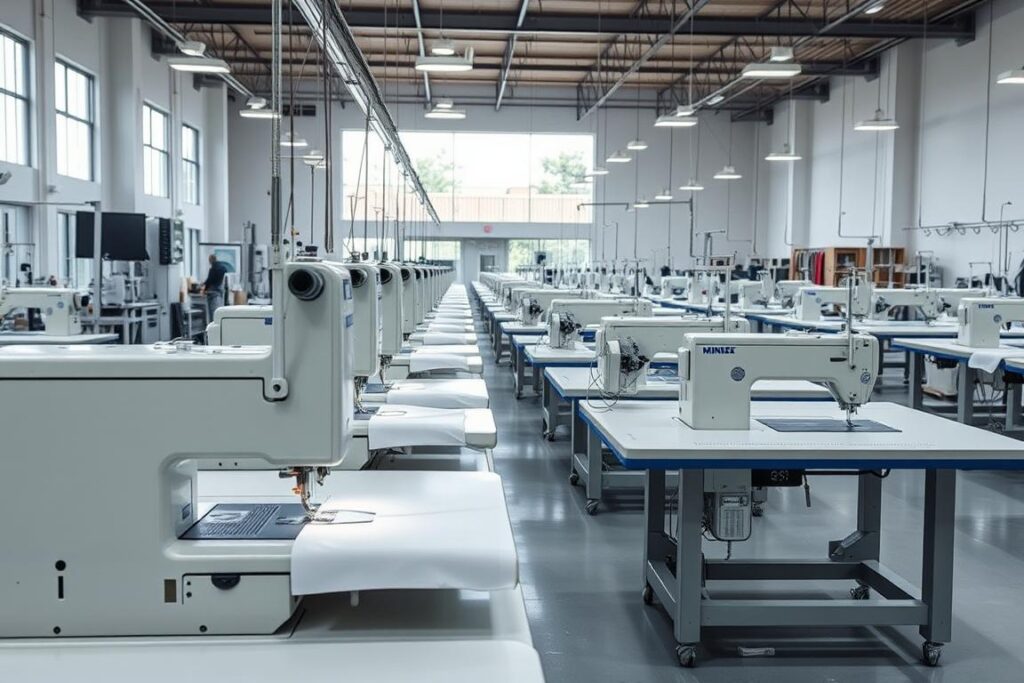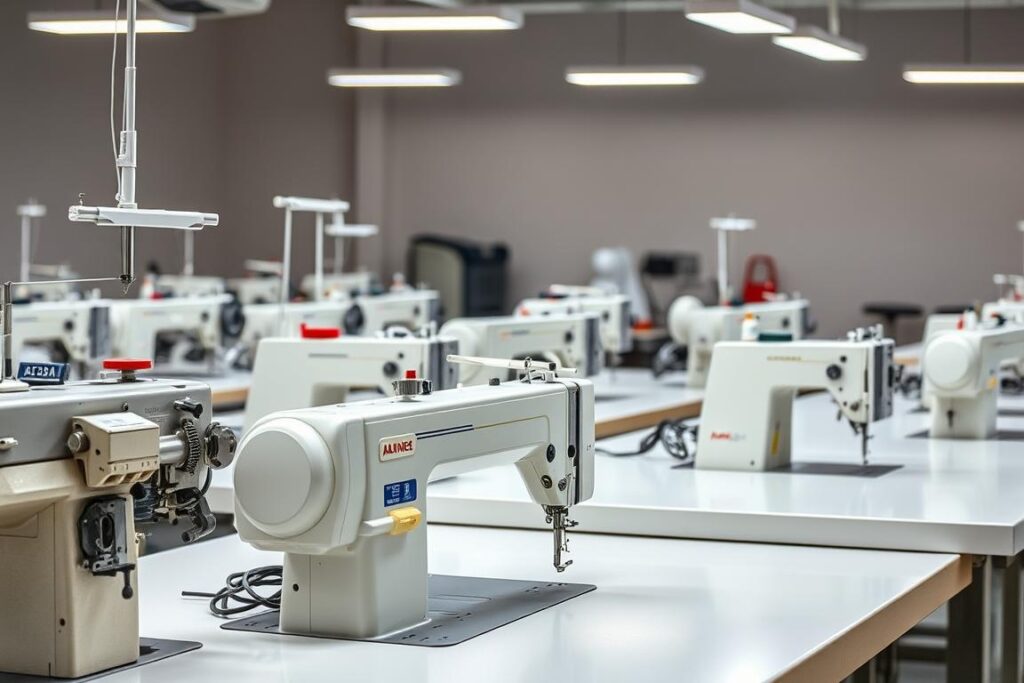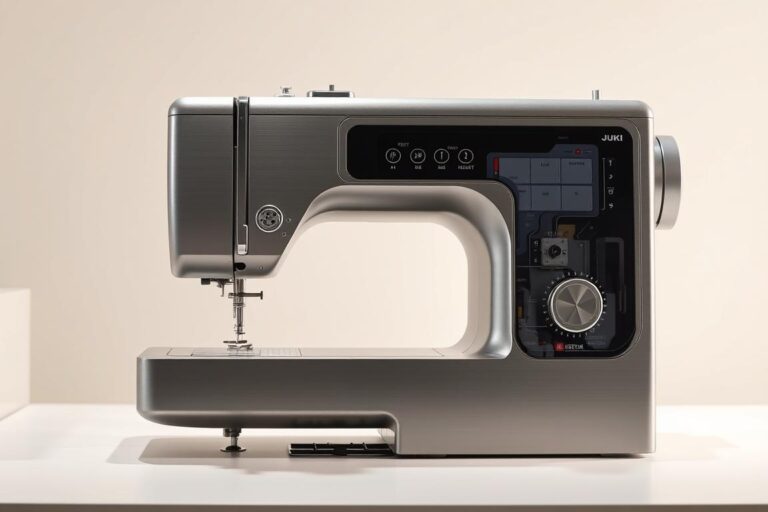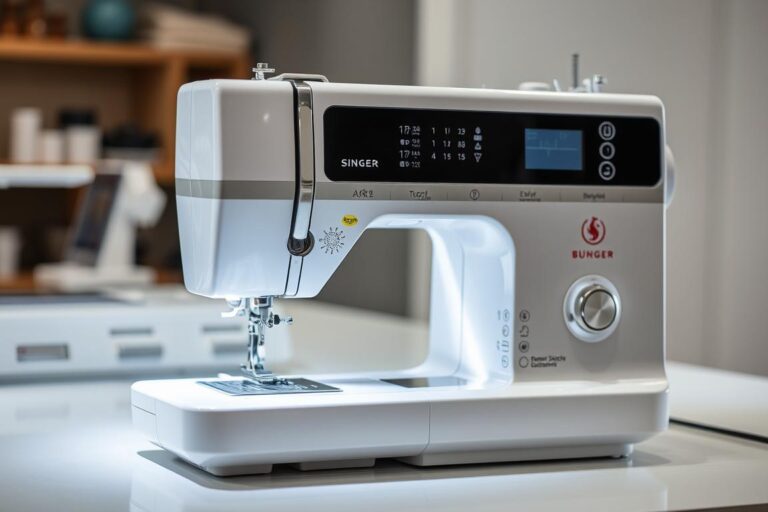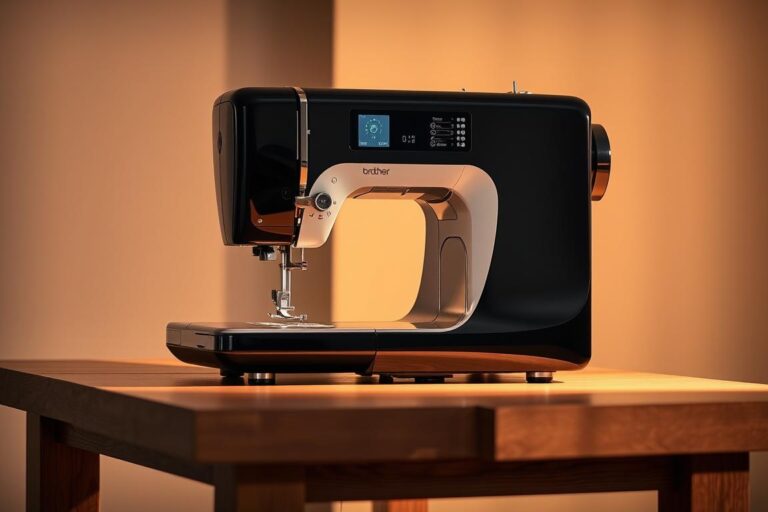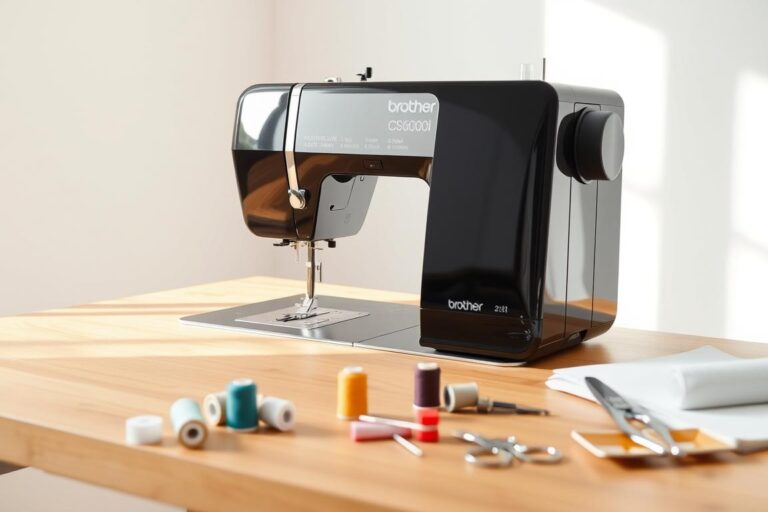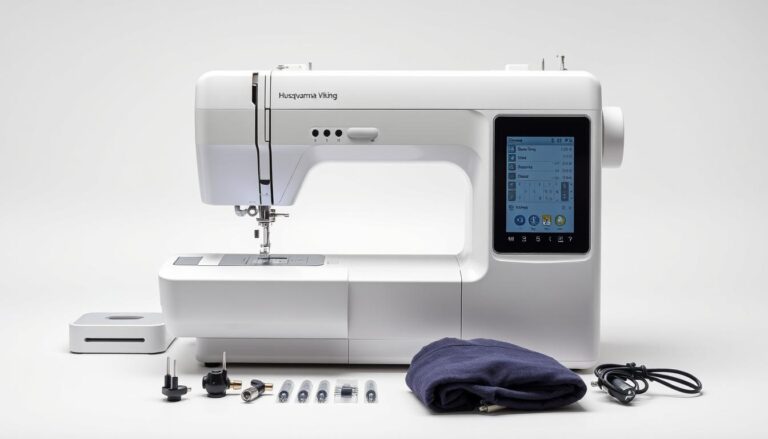Discover Top 5 Industrial Machines Loved by Fashion Startups
Ever wondered how small fashion brands manage to create high-quality, sustainable garments while keeping up with demand? The secret lies in the tools they use—industrial sewing machines. These powerful devices are revolutionizing the way startups approach design and production.
In today’s fast-paced world, the fashion industry is shifting toward eco-conscious practices. Industrial sewing machines are at the forefront of this change. They allow designers to craft durable, artisanal pieces while saving energy and reducing waste. 83% of emerging designers credit these machines as essential for scaling their businesses.
Whether you’re upcycling vintage fabrics or launching a slow-fashion line, these tools bridge the gap between handmade craftsmanship and professional-grade results. Let’s explore how they’re empowering creative minds to reshape the future of fashion.
Why Industrial Sewing Machines Are Essential for Fashion Startups
In the world of sustainable fashion, speed and precision are non-negotiable. Industrial sewing machines are the backbone of modern clothing manufacturing, enabling businesses to meet growing demands while maintaining quality. With the market value reaching $3.4 billion in 2024, it’s clear these tools are here to stay.
Asia Pacific leads the way in adoption, with luxury machine demand rising 22% year-over-year. This growth is fueled by e-commerce, which has increased machine requirements by 35% since 2020. For startups, investing in these machines is a game-changer.
Speed is key. Industrial models deliver up to 5,500 stitches per minute—five times faster than domestic machines. This efficiency saves time, allowing brands to focus on creativity and innovation. Plus, professional finishes like overlock stitches and zigzag patterns ensure every piece stands out.
Real-world success stories prove their impact. Sokkar’s partnership with Jack Technology boosted Egyptian ready-wear quality by 60% using advanced C7 URUS models. These machines aren’t just tools; they’re partners in growth.
Sustainability is another win. Built to last 10-15 years, industrial sewing machines reduce electronic waste compared to disposable alternatives. For eco-conscious brands, this is a major advantage. Pro tip: Check out Juki’s new Gujarat factory for India-made machines that support ethical manufacturing.
Whether you’re scaling your business or crafting artisanal pieces, industrial sewing machines are essential. They combine speed, precision, and sustainability to help you thrive in today’s competitive market.
Top 5 Industrial Machines Loved by Fashion Startups
When it comes to scaling your fashion brand, the right tools make all the difference. These sewing machines are trusted by startups for their reliability, speed, and precision. Let’s dive into the top picks that are reshaping the industry.
Juki DDL-8700 is a library-quiet workhorse, perfect for shared studio spaces. With 5,500 stitches per minute, it handles up to 10 layers of vinyl effortlessly. Its 5-year warranty adds unbeatable value for long-term use.
For startups producing small-batch collections, the Janome HD1000 is a tank. Its all-aluminum body withstands 8-hour daily use, making it a durable choice for high-volume projects.
Denim specialists swear by the Singer 191D-30. This clutch-motor marvel sews through 12oz canvas like butter, making it a favorite for sustainable jeans brands.
Looking for a pro upgrade? The Juki DDL-5550N grows with your skills. Start at 2,000 stitches per minute and ramp up as your orders increase. It’s the perfect choice for evolving businesses.
On a budget? The Consew 206RB-5 offers triple-feed precision at 30% lower cost than competitors. Its 50″ workspace is ideal for large projects, making it a top pick for crowdfunded ventures.
These machines aren’t just tools—they’re partners in your creative journey. Whether you’re crafting artisanal pieces or scaling production, they deliver the speed, precision, and durability you need to succeed.
Key Features to Look for in Industrial Sewing Machines
Choosing the right sewing machine can make or break your production process. With so many options available, it’s essential to focus on features that enhance efficiency and quality. Let’s explore what truly matters when selecting your next machine.
Stitch versatility is a must. Look for machines offering 5+ stitch types. From reinforced seams for handbags to stretch stitches for athleisure, this flexibility ensures you can handle diverse products with ease.
Threading can be a time-consuming task, but not with auto-threading technology. Juki’s MO-1000 reduces setup time by 70%, while Bernina’s air-threading tech saves 15 minutes per hour. These features are lifesavers when deadlines are tight.
Energy efficiency is another key factor. Servo motors, like those in Jack Sewing’s Smart Motor, cut energy use by 55% compared to clutch motors. This translates to savings of $120/month for 8-hour daily use—a win for your budget and the planet.
Maintenance shouldn’t be a hassle. Brother’s color-coded threading guides and automatic lubrication keep your machine running smoothly. Less troubleshooting means more time for creativity.
For future-focused brands, Yamato’s voice-guided instructions are a game-changer. New team members can master complex overlock techniques in just 2 hours, ensuring your business grows with ease.
Differential feed is another feature to consider. Pegasus’ M900 prevents knit fabric from stretching, ensuring professional results every time. With these features, your machine will serve you well for years to come.
How Industrial Sewing Machines Drive Efficiency in Fashion Startups
Efficiency is the backbone of any successful fashion startup. In an industry where time and precision are critical, the right tools can make all the difference. Industrial sewing machines are designed to meet these demands, offering speed, versatility, and reliability.
Take Bruce’s Bomber 5000, for example. It can sew up to 1,000 meters continuously without skipped stitches—perfect for high-volume manufacturing. Similarly, Juki’s India-made DDL-7000A has increased local production capacity by 40%, helping businesses scale sustainably.
These machines also cut sampling time by 65%. With industrial precision, you can go from sketch to sellable product in just 72 hours. This is a game-changer for startups looking to stay ahead in the competitive design space.
Batch production becomes seamless with tools like Consew’s 10mm stitch length. It finishes garment seams three times faster than domestic machines, saving both time and resources. For small businesses, this means more time to focus on creativity and growth.
Material versatility is another standout feature. Whether you’re working with upcycled leather jackets or delicate deadstock silks, these machines handle it all. No need for separate tools—just one powerhouse for every fabric type.
Real-world success stories prove their impact. Brooklyn’s “ReStitch” collective doubled its output using Juki 5550Ns while maintaining handcrafted quality. Plus, energy-efficient models qualify for 30% green equipment tax credits in 18 US states. This eco-bonus frees up funds for sustainable materials like organic cotton.
From speeding up production to supporting eco-friendly practices, industrial sewing machines are transforming the industry. They’re not just tools—they’re partners in your journey to create, innovate, and thrive.
Top Brands Leading the Industrial Sewing Machine Market
In the competitive world of sewing machines, certain brands stand out for their innovation and reliability. These brands have been shaping the industry for years, offering products that combine precision, durability, and value. Let’s take a closer look at the leaders in this space.
Juki holds a remarkable 38% global market share. Their Gujarat-made DDL-7000A series is a game-changer, offering 0.01mm needle positioning accuracy. This ensures flawless pleats and tucks, making it a favorite among designers.
For micro-studios, Brother’s FB-N31A is a perfect fit. Its smartphone-connected diagnostics predict maintenance needs before breakdowns occur. This feature saves time and keeps your workflow smooth.
If you’re looking for value, Jack’s E4S is a top pick. It delivers industrial speed at half the price, with free lifetime video tutorials for new entrepreneurs. Plus, its Smart Motor reduces energy costs by $1,200/year.
For those who prioritize precision, Bernina’s L 890 is the “Rolls-Royce for slow fashion.” Used by Parisian couture houses, it offers 0.2mm stitch precision, perfect for decorative stitching.
Lastly, Pegasus’ EX Series is ideal for startups landing their first 500-unit wholesale order. It handles 7,000 stitches per minute, ensuring you meet deadlines with ease.
These brands are not just about sewing machines; they’re about empowering you to create, innovate, and thrive. Whether you’re a seasoned designer or just starting, these tools will help you achieve your goals.
Conclusion
Your journey to crafting sustainable, high-quality garments begins with the right tools. Whether you’re drawn to Juki’s quiet power or Jack’s budget-friendly brilliance, these machines transform ideas into inventory. The right choice pays for itself in 6-8 months—use our free “Sew Smart” calculator to estimate your ROI.
Join the revolution! 73% of successful eco-fashion businesses started with just one machine—yours could be next. Need personalized advice? Our sustainable sewing experts are here to help. Schedule a free machine matching session today!
Pro Tip: Many manufacturers offer 0% financing for startups. Turn your creative vision into profitable products without upfront costs. Your creative future starts now!
FAQ
What makes industrial sewing machines different from home models?
Industrial sewing machines are built for heavy-duty use, offering higher speed, durability, and precision. They handle thicker fabrics and larger volumes, making them ideal for fashion startups focused on quality and efficiency.
Which brands are known for reliable industrial sewing machines?
Brands like Juki, Brother, Singer, Pfaff, and Janome are leaders in the industry. They offer machines with advanced features, ensuring smooth operations for fashion businesses.
How do I choose the right industrial sewing machine for my startup?
Consider factors like the type of fabric you work with, the volume of production, and specific features like stitch types and automation. Researching models and reading reviews can help you find the best fit for your needs.
Are industrial sewing machines worth the investment for small businesses?
Absolutely! While the initial price may be higher, their durability and efficiency save time and reduce long-term costs. They’re a smart choice for startups aiming to scale their production.
Can industrial sewing machines handle delicate fabrics?
Yes, many industrial models are designed to work with a variety of fabrics, including delicate ones. Look for machines with adjustable settings and specialized needles to ensure precision.
What maintenance do industrial sewing machines require?
Regular cleaning, oiling, and occasional servicing are essential to keep them running smoothly. Proper maintenance extends their lifespan and ensures consistent performance.
How do industrial sewing machines improve efficiency in fashion startups?
They speed up production, reduce errors, and handle complex tasks with ease. This allows startups to meet deadlines, maintain quality, and grow their business faster.
